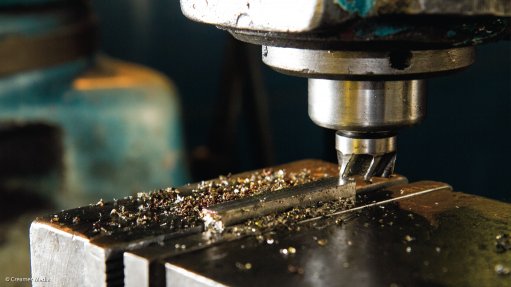
Photo by: Duane Daws
While the Steel and Engineering Industries Federation of Southern Africa (Seifsa) celebrated the end of the month-long engineering and metals industry strike, fellow employer organisation, the National Employers’ Association of South Africa (Neasa), stated that it would continue with a lock-out of workers who had engaged in the industrial action until a more sustainable wage offer was accepted.
The National Union of Metalworkers of South Africa (Numsa) and five other unions on Monday accepted Seifsa’s offer of a 10% wage increase for the lowest grades for three years; however, Neasa had not signed this agreement because of the “unsustainable level of the wage increase”, which it argued would cause the industry to decline even further.
Neasa added that it also was not party to the agreement, as the unions had refused to address its demands for the creation of a new entry-level wage for newcomers, which it believed was an “absolute must” for job creation and the creation of a more flexible dispensation.
Neasa noted that it was expected that the parties who signed the wage agreement would approach the Labour Minister to extend the agreement to parties who did not sign.
“In such an event, Neasa will petition the Minister not to extend the agreement to nonparties. If she, notwithstanding Neasa's submissions to her, goes ahead and extends the agreement, Neasa will institute review proceedings in the Labour Court to have it set aside, similar to what Neasa [did] with the 2011 to 2014 Metal Industry Agreement,” the organisation said.
Trade union Uasa on Tuesday also pointed to the agreement potentially being extended to cover all parties, irrespective of whether they signed the agreement, adding that the union believed Neasa would fail should it approach the Labour Court to prevent this.
"Our members have [also] been advised that, should any of the Neasa affiliated employers lock them out or threaten to do so, they must inform us immediately so that we can take the appropriate remedial action," Uasa said.
Meanwhile, Neasa CE Gerhard Papenfus said Seifsa was letting the industry down, especially small and medium-sized businesses, pointing out that the wage increase agreed was 3.4% above inflation.
“Seifsa has ‘reluctantly’ agreed to this settlement and admitted that it will inevitably result in ‘massive job losses’. Therefore, how can anyone refer to this settlement as one which will bring stability to the Industry?
“This is nothing other than an arrangement which will speed up the demise of the metal industry, causing worsened unemployment and poverty and, therefore, socioeconomic instability,” Papenfus asserted, adding that Seifsa represented only 18% of employers in the industry.
Meanwhile, Seifsa CEO Kaizer Nyatsumba stated that it was incumbent on all stakeholders in the metals and engineering sector to work cooperatively to grow the sector and to ensure that it was internationally competitive.
“The sector has a very important role to play in the delivery of government’s ambitious infrastructure development programme over the next few years, and that can happen only when a strong partnership exists between business and labour,” Nyatsumba said.
Seifsa chief economist Henk Langenhoven told Engineering News Online that it was expected that it would take the companies affected by the strike two to three weeks to ramp-up to full production.
Nomura economist Peter Attard Montalto noted that it was estimated that the strike had subtracted around 0.17 percentage points from South Africa’s full-year gross domestic product, which was now expected to show growth of 1.6%.